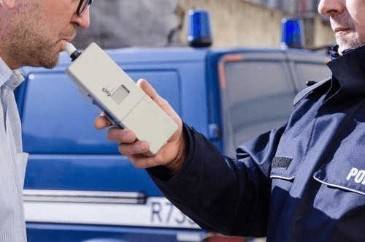In Virginia, no one can legally request a blood test in place of a breath test; it is completely at the discretion of the police officer as to whether someone is offered a breath test or a blood test.
 The protocol is to always offer a breath test unless there is a problem with the breath test machine and it’s not working properly, or if the officer suspects that the person may be intoxicated by drugs rather than alcohol. The officer can then request the blood test, but never the client and, if you refuse to take the blood test when requested, that’s considered an unreasonable refusal, which can result in a one-year loss of driving privileges.
The protocol is to always offer a breath test unless there is a problem with the breath test machine and it’s not working properly, or if the officer suspects that the person may be intoxicated by drugs rather than alcohol. The officer can then request the blood test, but never the client and, if you refuse to take the blood test when requested, that’s considered an unreasonable refusal, which can result in a one-year loss of driving privileges.
Are DUI Checkpoints Allowed In Virginia?
The U.S. Constitution guarantees every citizen the right to be free from unreasonable stops, searches and seizures, but there are legal exceptions and one of those is sobriety checkpoints and roadblocks, which are allowed in Virginia subject to very specific, detailed and restrictive provisions and conditions which are too numerous to go into here. A chief of police must sign off on the plan, and the check point/roadblock is very limited to several hours at a specific time and a specific place.
One reason a place is chosen is usually based on where prior accidents or other indicators demonstrate a danger at that particular spot from drinking and driving. The cars must not be stopped randomly or at the discretion of the officers; the plan must set forth exactly and without prejudice or bias how cars are stopped, whether it’s every car, every other car or every third car that is stopped. The law does not favor roadblocks, so they have to be very specific and limited.
What Are a Person’s Constitutional Rights When Stopped at a DUI Checkpoint?
Their constitutional rights are the same as anytime; no one has to talk with the police ever; the only obligation when approached by the police at a roadblock is to identify yourself properly; produce your driver’s license and registration and you will need to comply with their instructions, such as pulling over to the side of the road, or getting out of your car, but other than that, you do not have to answer any questions and you do not have to perform any field sobriety tests.
How Does An Arrest at a DUI Checkpoint Differ from a Regular DUI Arrest?
Because the scope and nature of a roadblock is much different than a standard DUI charge, in which a person has to demonstrate bad driving behavior first such as speeding or weaving and is pulled over for the bad driving behavior, a roadblock case will be significantly different because of the requirement that a number of law enforcement officers will have to be in court including the chief of police or a high ranking police official who approved the plan, the officer who stopped the vehicle at the roadblock, and perhaps a third officer, who may have spoken to the defendant when they had them pull over to the side of the road, so there will virtually always be three police officers in a roadblock case as opposed to one in a standard DUI case. In addition, the requirements regarding a plan for the roadblocks must be produced in court and testified to that are different than a standard DUI stop.
At What Point is an Officer Required to Read a Suspect their Miranda Rights?
A police officer is never required to read the Miranda Rights; that’s something TV and movies make everyone think. While reading the Miranda Rights does advise one of their basic constitutional rights when dealing with the police, it is also used to protect the integrity of the police officer’s case against you. Miranda Rights or warnings are only required when a defendant is in custody (handcuffed, gun to the head, in the back of a police car or in jail) and a police officer interrogates them and the defendant makes a confession while being questioned by the officer in custody.
If the police officer wants to use a person’s confession received while in custody against them in court, they have to show that they first read them their Miranda Rights and that they waived them before talking to the police officer and making a confession. Miranda Rights are never given and do not have to be given during the investigatory stage of police activity; only when they’re in custody and only when the police officer wants to ask questions, if they intend to use the answers against the client.
For more information on Blood Tests Vs. Breath Tests, a free initial consultation with DUI lawyer is your next best step. Get the information and legal answers you’re seeking by calling (703) 313-2727 today.
